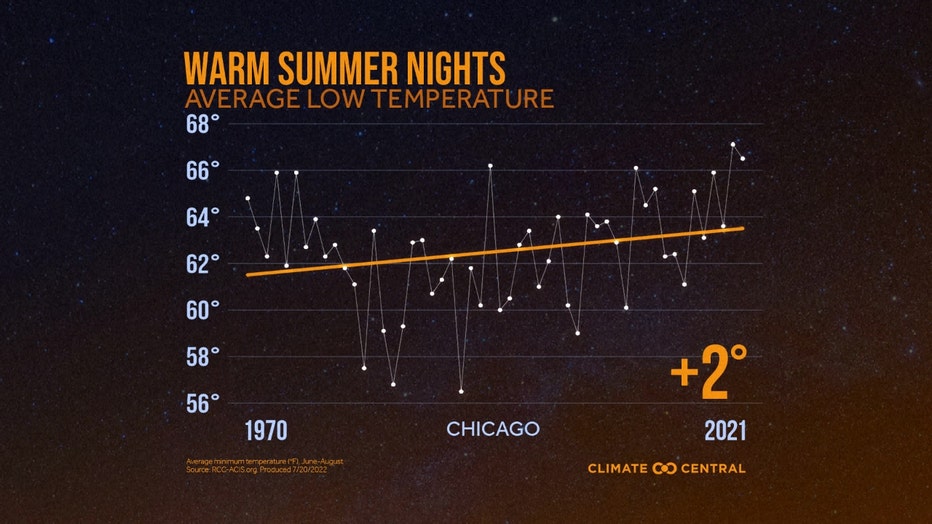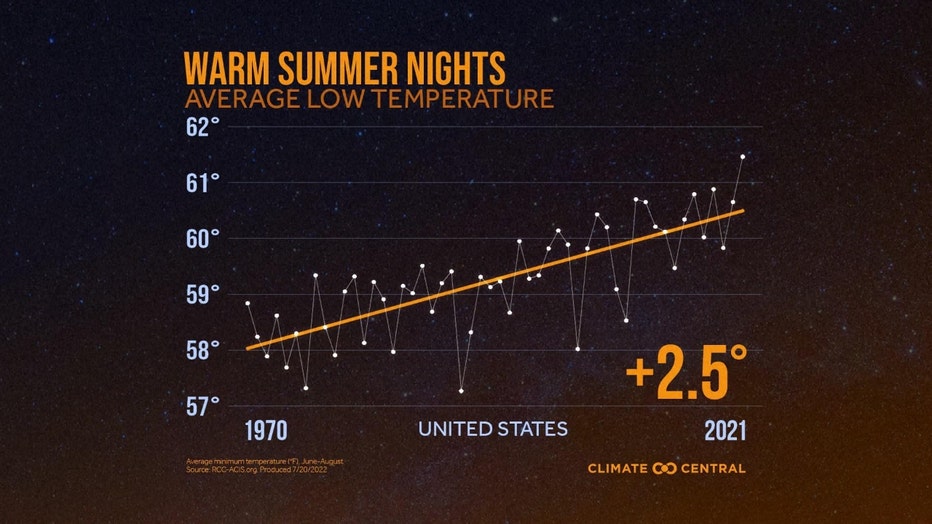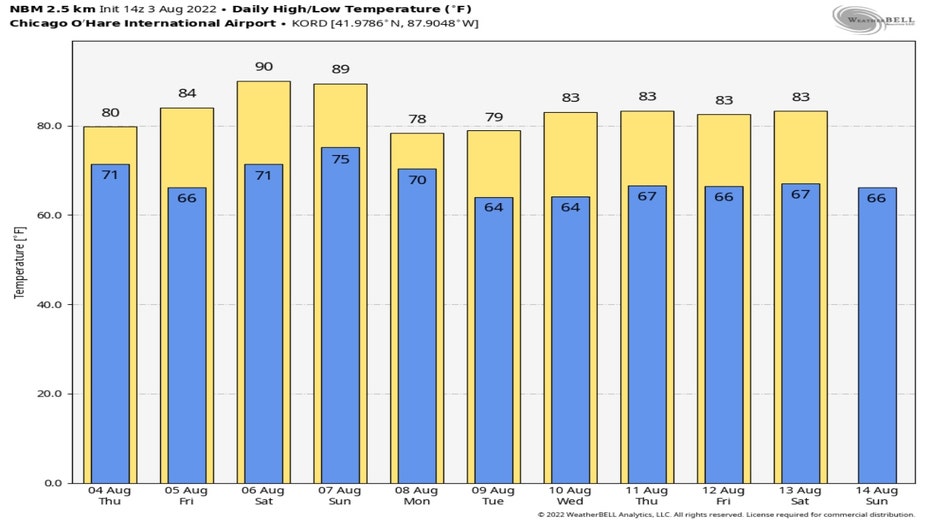Tim's Weather Takeaways: But, uh oh, those summer nights
Chicago - Little did John Travolta and Olivia Newton-John know when they first sang that song 44 years ago just how much our summer nights would be warming over the coming years.
Summer minimum (nighttime) temperatures have warmed nearly twice as fast as summer maximum (daytime) temperatures since records began back in 1895. Overnight lows have warmed at a rate of 1.58 degrees per century.
Climate Central did a study of summer nights to see how much they have changed since 1970. They analyzed 246 U.S. locations and found that average summer nights have warmed by at least three degrees for 40% of the towns and cities they studied. Nearly a quarter of them warmed by a whopping four degrees.
SUBSCRIBE TO THE FOX 32 YOUTUBE CHANNEL
Chicago's summer nights (average low temperature) has warmed by two degrees since 1970.
So far, 35 out of 64 nights this summer have been above average. That is about 55% of nights since June 1.

The average warming of summer nights for the United States was 2.5 degrees. Some cities saw much higher amounts of warming including Reno, Nevada (+17.3 degrees), Las Vegas, Nevada (+9.5 degrees), El Paso, Texas (+8.1 degrees), Salt Lake City, Utah (+7.3 degrees) and Boise, Idaho (+6.9 degrees).
More records are falling overnight compared to during the day. Over the past seven days, the U.S. set 91 record high minimum (nighttime) temperatures versus 71 record high maximum (daytime) temperatures. Year-to-date the U.S. has set 21,267 record high minimum (nighttime) versus 17,905 record high maximum (daytime) temperatures. So to put it simply, record warm lows are outpacing record warm highs.

We still have nearly a month of summer left to go. The National Blend of Models long range forecast suggests more warm summer nights are coming. The average low for this time of the year is around 66 degrees.

The forecast calls for six of the next 11 days to have nighttime minimum temperatures above average.

